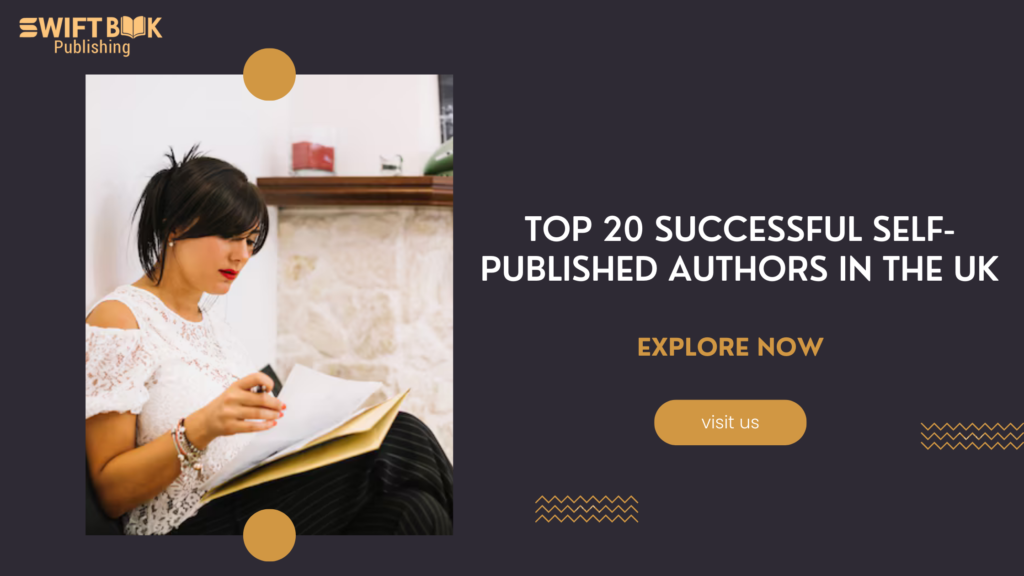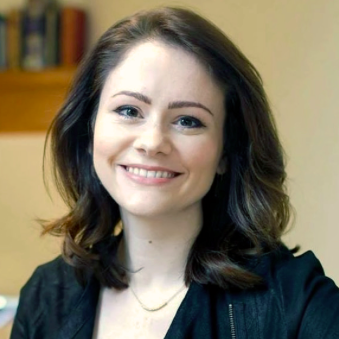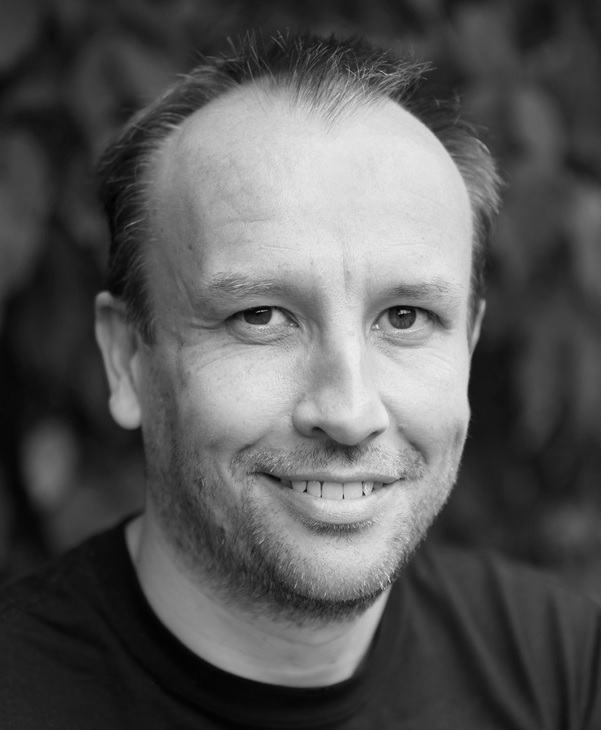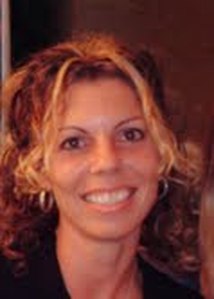Breaking into the publishing world has always been challenging, especially for writers without industry connections or substantial financial backing. Many budding authors face rejection after rejection from traditional publishers, leading to feelings of frustration and self-doubt. However, with the rise of self-publishing, a new wave of opportunities has emerged, allowing writers to bypass traditional barriers and reach readers directly.
This blog explores the world of successful self published authors, particularly in the UK. You’ll uncover inspiring self publishing success stories, gain insight into how these authors made their mark, and learn actionable steps to follow in their footsteps. If you’ve ever wondered, “Can you be a successful self-published author?” or “How much do successful self-published authors make?”, this guide is for you.
The Self-publishing in the UK
Self-publishing is more than a backup option for rejected manuscripts; it’s a powerful, independent route to getting your work into the hands of readers. In the UK, self-publishing has grown significantly, driven by accessible platforms like Swift Kindle Direct Publishing (KDP) and print-on-demand services.
| Benefits of Self-Publishing | Challenges Faced by Self-Published Authors |
| Total creative control over content, design, and marketing. | Responsibility for editing, marketing, and distribution |
| Higher royalties compared to traditional publishing. | Overcoming stigma around self-published works. |
| Direct access to global markets. | Building an audience without a publisher’s network. |
The Role of the Association of Self Published Authors
The association of self published authors plays a crucial role in legitimizing and supporting the industry. Through resources, networking opportunities, and advocacy, they help self-published authors navigate their journeys.
Key Benefits of Membership:
- Access to industry insights and trends.
- Guidance on marketing strategies.
- Opportunities to network with other authors and professionals.
Top 20 Successful Self-Published Authors in the UK
Lets profile 20 successful self published authors who have turned their dreams into reality. These authors represent a variety of genres, from romance to crime thrillers, and their stories are nothing short of inspiring.
1. Amanda Hocking
- Genre: Paranormal Romance
- Success Story: Initially rejected by traditional publishers, Amanda turned to self-publishing. Through strategic use of digital platforms, she sold over a million books and eventually landed a lucrative publishing deal.
2. Rachel Abbott
- Genre: Psychological Thrillers
- Success Story: With over 4 million copies sold worldwide, Rachel built her career by targeting Kindle readers with gripping thrillers that keep readers hooked.
3. Mark Dawson 
- Genre: Crime Fiction
- Success Story: Mark leveraged digital marketing to reach readers, creating a profitable career with his “John Milton” series and earning a seven-figure income annually.
4. LJ Ross 
- Genre: Crime Fiction
- Success Story: LJ Ross self-published her first book on a whim and quickly found a passionate audience. Her “DCI Ryan” series is now a household name among UK readers.
5. Adam Croft 
- Genre: Crime and Mystery
- Success Story: Adam found success by targeting a niche audience. His financial independence and creative control demonstrate the power of self-publishing.
6. Bella Andre
- Genre: Contemporary Romance
- Success Story: Bella Andre is a pioneer in the self-publishing world, having sold over 8 million books globally. Her series, The Sullivans, propelled her to fame, and she has retained complete creative control over her work.
7. Hugh Howey
- Genre: Science Fiction
- Success Story: Hugh Howey’s Wool series became a self-publishing phenomenon. By embracing serialized storytelling and leveraging Kindle Direct Publishing, Howey attracted a global audience, eventually securing a movie deal.
8. Caroline Mitchell
- Genre: Psychological Thrillers
- Success Story: Formerly a police officer, Caroline Mitchell used her real-life experiences to craft compelling thrillers. Self-publishing launched her career, which now includes several bestselling novels.
9. Mel Sherratt
- Genre: Crime Fiction
- Success Story: After being rejected by traditional publishers, Mel turned to self-publishing. Her grit paid off, as she became a bestseller on Swift with titles like Taunting the Dead.
10. Michael J. Sullivan
- Genre: Fantasy
- Success Story: Michael J. Sullivan self-published his Riyria Revelations series, which became a bestseller and later attracted traditional publishers. His story highlights the crossover potential between self-publishing and traditional publishing.
11. Claire Farrell
- Genre: Urban Fantasy
- Success Story: Claire Farrell’s Ava Delaney series captivated readers, demonstrating the power of engaging storytelling and smart pricing strategies in the self-publishing market.
12. Joseph Alexander
- Genre: Music Education (Non-Fiction)
- Success Story: A self-taught musician, Joseph turned his expertise into a profitable self-publishing venture, selling over 1 million copies of his instructional books for guitar players.
13. Shari Low
- Genre: Women’s Fiction
- Success Story: Shari Low transitioned from traditional publishing to self-publishing to gain creative freedom. Her relatable stories and effective marketing made her a favorite among UK readers.
14. Caimh McDonnell
- Genre: Comic Crime Fiction
- Success Story: Known for his unique blend of humor and crime, Caimh McDonnell built his career as a self-published author. His Dublin Trilogy series became a hit, earning him a loyal fanbase.
15. Jo Bartlett
- Genre: Women’s Fiction and Romance
- Success Story: Jo Bartlett found success in the digital space with her heartwarming novels. Her work is widely loved for its relatable characters and touching storylines.
16. Kerry Wilkinson
- Genre: Crime Fiction
- Success Story: Kerry Wilkinson’s Jessica Daniel series became a bestseller after he self-published it on Swift. His success underscores the importance of consistent output and audience engagement.
17. Nick Spalding
- Genre: Humor and Romance
- Success Story: Known for his witty and light-hearted novels, Nick Spalding achieved financial independence through self-publishing. His books often top digital bestseller lists.
18. Ian Sutherland
- Genre: Techno-Thrillers
- Success Story: Ian Sutherland’s deep knowledge of cybersecurity inspired his gripping thrillers. Self-publishing allowed him to reach a niche audience interested in high-stakes technology narratives.
19. Sibel Hodge
- Genre: Crime and Mystery
- Success Story: Sibel Hodge’s career took off after she self-published her crime novels. With engaging plots and relentless pacing, her books have become staples on Swift bestseller lists.
20. J.F. Penn
- Genre: Thriller and Non-Fiction
- Success Story: Joanna Penn, under the pen name J.F. Penn, built her career by blending traditional thriller elements with supernatural twists. As a prominent voice in the self-publishing industry, she also educates aspiring authors through her blog and podcast.
Can You Be a Successful Self-Published Author?
The question “Can you be a successful self-published author?” resonates with many aspiring writers. The answer lies in understanding the unique opportunities self-publishing offers and recognizing the effort required to succeed.
1. Defining Success in Self-Publishing
Success in self-publishing is not one-size-fits-all. For some, it’s about financial stability, while for others, it’s about sharing a message or growing a loyal reader base.
Key Metrics of Success:
- Financial Success: Achieving sustainable income or even wealth through book sales.
- Audience Engagement: Building a dedicated community of readers who value your work.
- Creative Fulfillment: Retaining control over your stories, themes, and presentation.
2. Essential Traits of Successful Self-Published Authors
Success requires a mix of creativity, persistence, and entrepreneurial skills. Key traits include:
- Strong Work Ethic: Self-published authors must manage their writing, editing, and marketing.
- Marketing Savvy: Understanding how to reach readers through digital ads, social media, and email campaigns.
- Resilience: Navigating setbacks and learning from them.
3. Answering the Question: Can You Be a Successful Self-Published Author?
Yes, you can—if you’re willing to treat self-publishing like a business. Many authors featured in this blog have proven that dedication and smart strategies can lead to extraordinary results.
How Much Do Successful Self-Published Authors Make?
One of the most frequently asked questions about self-publishing is, “How much do successful self-published authors make?” While the answer varies, many authors achieve financial success that rivals or exceeds traditionally published writers.
1. Earnings Overview
- Average Incomes:
- New authors: £500–£5,000 annually.
- Mid-tier authors: £10,000–£50,000 annually.
- Top Earners: Authors like LJ Ross and Mark Dawson reportedly earn six to seven figures yearly.
2. Key Factors Affecting Income
- Genre: Romance, thrillers, and niche non-fiction often perform best.
- Marketing Efforts: Effective use of ads, social media, and newsletters can significantly boost sales.
- Platform Choice: Swift KDP remains the most lucrative platform for many.
3. Real-Life Success Stories of Earnings
Highlighting specific authors and their financial milestones underscores the earning potential.
Read More: How Much Does It Cost to Publish a Book in UK?
Lessons from Successful Self-Published Authors
The journeys of the successful self published authors highlighted earlier reveal valuable lessons. Whether you’re just starting or looking to refine your strategy, these insights can pave the way for your self-publishing success.
1. Write for Your Audience
Understanding your target audience is critical. Successful authors research their readers’ preferences, focusing on genres and themes that resonate.
Tips:
- Use reader surveys or online forums to identify trends in your genre.
- Pay attention to reviews (positive and negative) for insights into what readers love or dislike.
2. Invest in Professional Editing and Design
First impressions matter. Many authors fail because their books lack polish or appeal visually. Successful authors ensure their work is professionally edited and has compelling cover designs.
Tips:
- Hire an experienced editor familiar with your genre.
- Use tools like Canva or hire a professional designer for your cover.
3. Leverage Digital Marketing
Authors like Mark Dawson exemplify the importance of marketing. From targeted Facebook ads to engaging newsletters, building an online presence is key to standing out.
Tips:
- Learn how to run ads on platforms like Swift and Facebook.
- Build an email list to stay connected with your readers.
4. Build a Personal Brand
Establishing yourself as a trusted voice in your genre helps create a loyal reader base.
Tips:
- Create a professional author website.
- Engage with readers through social media or virtual events.
Resources to Help Aspiring Self-Published Authors
Becoming a successful self-published author often involves leveraging the right tools and communities. Here are some essential resources:
1. Platforms for Publishing
- Swift KDP: The most popular platform for eBooks and print-on-demand.
- Draft2Digital: Helps authors distribute to multiple retailers like Apple Books and Barnes & Noble.
- IngramSpark: Ideal for wide distribution, including physical bookstores.
2. The Role of the Association of Self Published Authors
The association of self published authors is a vital network for guidance and support. It provides:
- Expert advice on marketing and publishing.
- Networking opportunities with other authors.
- Workshops and webinars to enhance skills.
3. Marketing Tools
- BookBub: A platform for promoting discounted eBooks.
- Reedsy: Connects authors with freelance professionals for editing, design, and marketing.
- Mailchimp: Ideal for managing newsletters and reader outreach.
4. Community Support
Joining communities helps authors stay motivated and gain insights from others’ experiences. Examples include:
- Online forums like KBoards.
- Facebook groups dedicated to self-publishing.
Actionable Tips to Maximize Your Potential
Ready to take the plunge? Here are some concrete steps to ensure you succeed in self-publishing:
- Set Realistic Goals: Define what success means to you—financial freedom, creative fulfillment, or both.
- Create a Publishing Plan: Draft a timeline from writing to launch. And Set milestones for editing, cover design, and marketing.
- Focus on Quality: High-quality writing and presentation increase your chances of success.
- Learn Continuously: The publishing world evolves rapidly. Stay updated on trends and best practices.
- Experiment with Pricing and Promotions:Test different price points and use discounts strategically to attract new readers.
Conclusion
The stories of the successful self published authors featured in this blog prove that self-publishing is a viable path to success. By understanding the landscape, learning from those who’ve excelled, and applying the lessons shared, you too can join their ranks.
Self-publishing may require hard work and determination, but the rewards—creative freedom, financial independence, and reader connection—are worth it.
So, what’s stopping you from starting your self-publishing journey today? As countless authors have shown, the only limits are the ones you set for yourself.
Frequently Asked Questions
1. What is the biggest challenge self-published authors face?
The biggest challenges include visibility in a crowded market, managing marketing and promotional efforts, and ensuring professional quality in editing, cover design, and formatting. Overcoming these hurdles often requires strategic planning and investment.
2. How do self-published authors handle copyright protection for their work?
Self-published authors automatically own the copyright to their work upon creation, but many opt to register it formally for additional legal protection. Platforms like Swift KDP provide tools to report copyright infringement, which helps safeguard authors’ rights.
3. Can self-published authors collaborate with traditional publishers later?
Yes, many self-published authors have transitioned to traditional publishing after achieving success independently. Examples include Hugh Howey and Amanda Hocking, who negotiated deals that allowed them to retain creative and financial control.
4. How do self-published authors maintain a consistent writing schedule?
Many self-published authors treat writing as a full-time job, setting clear goals and deadlines. Tools like Scrivener, writing sprints, and productivity apps help them stay on track, while some hire virtual assistants to handle administrative tasks.
5. What are the tax implications for self-published authors in the UK?
Self-published authors in the UK must register as self-employed and report their earnings through the self-assessment tax system. Income from book sales, royalties, and related services is taxable, but expenses like marketing, software, and editing can often be deducted. Consulting an accountant experienced in creative industries is advisable.





















